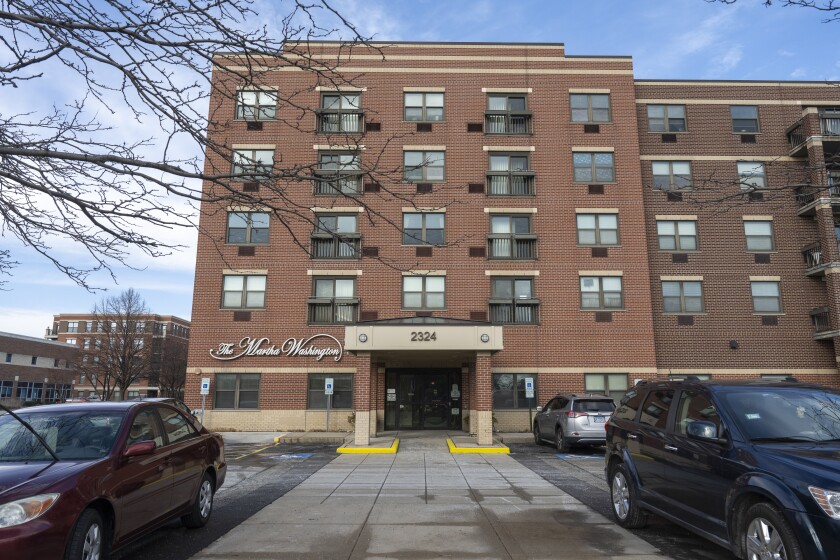Evergreen Real Estate Group has been operating for nearly 25 years, but 2025 is the year CEO Steve Rappin sees the commercial real estate firm elevating itself to “Evergreen 3.0.”
It’s a blueprint for the next 10 years to strengthen the existing business and continue to diversify, while also eyeing new markets.
Evergreen was founded in 2001 with a focus on property management. But over the past 10 years, it has widened its scope to include development and construction. It expanded into development around 2013, and Rappin said, “The growth between 2012 and now … has been huge.”
Its residential projects are often turned over to its property management division, and the firm typically delivers 20 or more projects a year, Rappin said.
He says he’s confident the company, which operates in Illinois, 13 other states and Washington, D.C., can expand its pipeline this year with market-rate and affordable housing developments.
“We’ve got a really healthy pipeline of projects, both in our development and our preservation group,” Rappin said.
The company, which declined to share revenue figures, has more than 500 employees, including 100 in Illinois. Evergreen said its portfolio includes 130 properties and 13,500 affordable and market-rate units for seniors and families. This year, the goal is to boost its portfolio to 145 properties and 15,000 units.
A key area of interest is expanding west, Rappin said.
The firm broke ground on an income-restricted apartment project in Rifle, Colorado, in September, and it has opened a satellite office in Denver. Several of its new projects are in the Greater Denver area, where Rappin said there’s “a really acute need” for affordable housing.
Evergreen has also expanded in the Northeast, into New York, New Hampshire, Massachusetts and Maine.
It’s a different picture in Illinois, where Rappin said opportunities could be drying up. A lot of the firm’s work relies on collaborating with local municipalities and financial partners to build affordable or senior housing. Many of its senior housing projects are done in communities that have access to those types of funds, in addition to Low-Income Housing Tax Credits.
There are no major new developments for Evergreen in Chicago this year, Rappin said.
“It’s become more difficult for us to do what we do in Chicago. The Illinois Housing Authority has very limited funds at this point. The city has been challenging for us to really get things done with.”
Evergreen is working on the rehabilitation of the Martha Washington apartments in North Center, 2324 W. Irving Park Road. The senior housing community was built about 15 years ago using low-income housing tax credits, Rappin said. It’s well-located and offers a variety of income-restricted floor plans, but it’s a “little bit tired” and in need of an update, he said.

The Martha Washington apartments, 2324 W. Irving Park Road.
Tyler Pasciak LaRiviere/Sun-Times
Challenges ahead
President Trump’s vows of mass deportation have Evergreen worried about the impact on labor and increased costs in many of its markets, as well as tariffs.
Last week, Trump announced and then halted plans for a 25% tariff on Canadian and Mexican goods. But he went through with a new 10% tariff on China, a big source for steel and stone.
“We don’t know what that’s going to mean, ultimately, for construction costs,” Rappin said.
Evergreen is also monitoring the labor market and plans to hire more owner representatives and individuals to oversee general contractors. An owner-rep is typically hired by the building owner to ensure the project is completed as the owner intended. With rising labor concerns, Rappin said the firm knows it has to be more active with its general contractors.
Rappin has also heard rumblings that private activity bonds might be in jeopardy. These bonds finance public projects with the help of private entities and are tax-exempt. Toward the end of 2024, the Congressional Budget Office proposed eliminating the tax exemption for private activity bonds used in a significant portion of Low-Income Housing Tax Credit affordable housing projects, Rappin said. That could save the federal government billions — at the cost of supporting projects like those by Evergreen.
“That would decimate our business,” Rappin said.
That’s part of the reason Evergreen wants to diversify. It’ll create a sustainable path for the next 10 years — and beyond.
“We want to continue our mission, but we want to do it in diverse ways,” Rappin said. “We’re being really purposeful about our overall company.”

As she watches how the Trump administration’s actions might affect her business, Adrian Mobley is rapidly expanding Air and Wellness Safety Training through construction projects.

Co-owner Mitch Einhorn has a lot on his mind but his biggest project for 2025 is starting the renovations on Lush’s Roscoe Village location.

The company is looking to enter into a new era by further diversifying the business and expanding into new markets.
#national #policy #shifts #loom #Evergreen #Real #Estate #Group #sees #bright #future












Leave a Reply